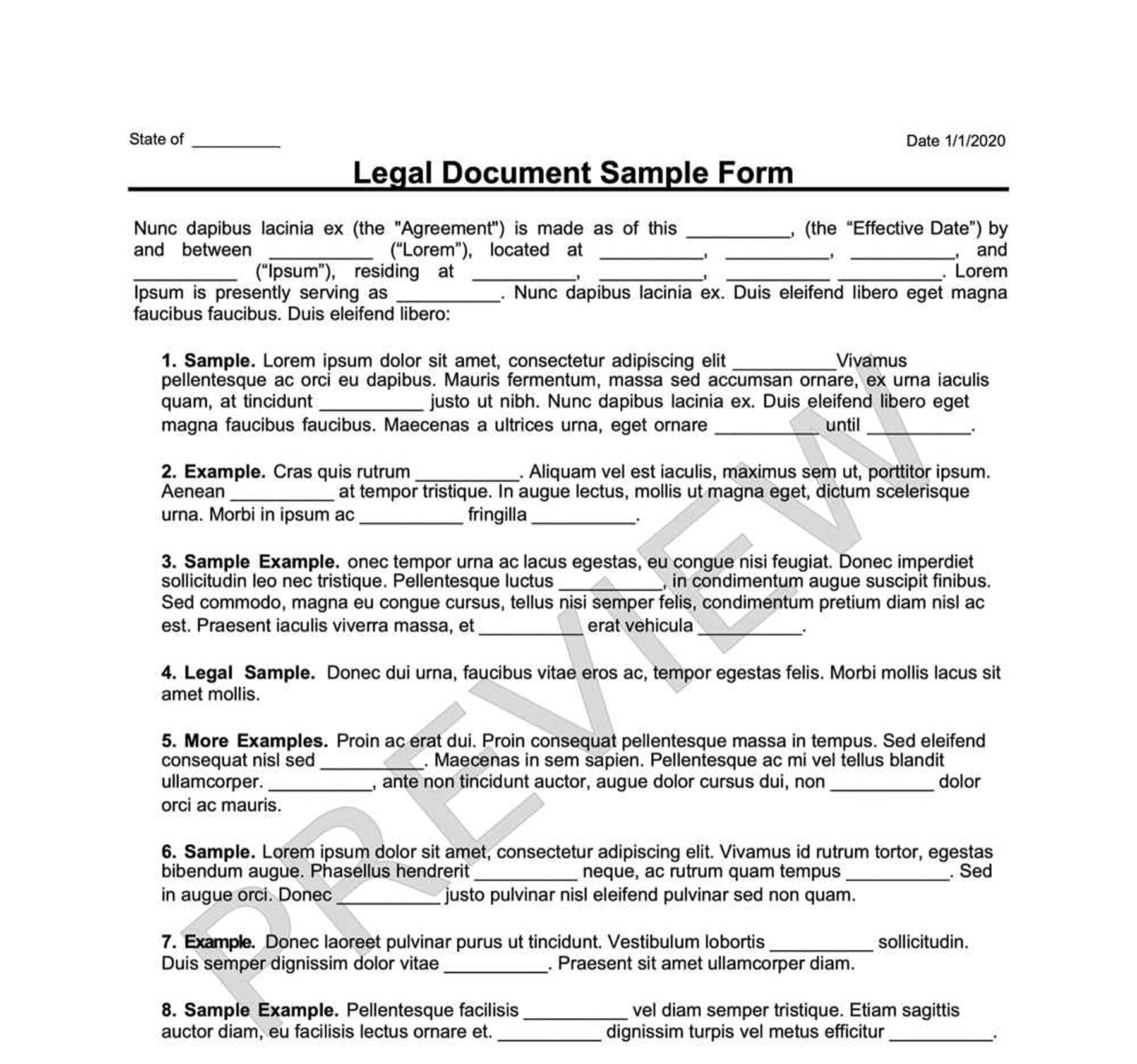Mutual Confidentiality Agreement
A Mutual Confidentiality Agreement is used to protect the confidential information of both parties involved in the agreement.

How it Works
Build your selected document.
Answer a few simple questions with step-by-step instructions.
Print & download forms instantly. Sign & make it legal.
What Is a Mutual Confidentiality Agreement?
Confidentiality Agreements are, in general, a common occurrence across businesses and industries. They are usually used to protect a company, employer, or an individual and their interests.
However, when two businesses are going through a merger or working on a joint project, they can benefit from a Mutual Confidentiality Agreement. With the agreement in place, the companies can be relatively confident that any confidential information disclosed will be safe and protected.
What Is a Mutual Confidentiality Agreement?
A Mutual Confidentiality Agreement protects the sensitive information of the two parties signing the agreement. Most often, these parties are businesses, but not exclusively. A Mutual Confidentiality Agreement can be used between two individuals or a company and an individual.
In any case, the idea is the same – the agreement outlines what is considered confidential information, and both parties promise not to disclose it to anyone. Information leaks are taken very seriously in some industries, in which companies take every precaution to prevent that from happening.
Other Names for Mutual Confidentiality Agreement
Depending on your state, a Mutual Confidentiality Agreement may also be known as:
- Bilateral Confidentiality Agreement
- Mutual Non-Disclosure Agreement
- 2-Way NDA
Who Needs a Mutual Confidentiality Agreement?
Individuals and companies possessing valuable proprietary information benefit from having a Mutual Confidentiality Agreement. In practice, this type of confidentiality agreement is most often used between businesses. For example, if two companies are launching a campaign together, they will most likely enter into a Mutual Confidentiality Agreement.
Why Use Swyft Forms for Your Mutual Confidentiality Agreement
Customized for you, by you
Create your own documents by answering our easy-to-understand questionnaires to get exactly what you need out of your Mutual Confidentiality Agreement.
Specific to Your Jurisdiction
Laws vary by location. Each document on Swyft Forms is customized for your state.
How to Create a Mutual Confidentiality Agreement
Confidentiality Agreements must be as specific as possible. Leaving out an important detail could lead to the document being voided by the court.
Let Swyft Forms help with our extensive library of attorney-vetted legal forms. The process is fast and easy. All you have to do is fill out our easy-to-understand questionnaire. Once complete, simply download your form as a PDF or Word document from your secure online account.
What Information Will I Need to Create My Mutual Confidentiality Agreement?
To create your document, please provide:
- Party Information: Full legal names of parties signing the agreement, the contact information, and the address.
- The Effective Date: The date when the deal goes into effect.
- Governing State: The state's law applying to the agreement.
- Purpose: An explanation of why the confidential agreement is necessary.
- Examples: One or several examples of what is considered confidential information.
- Additional Clauses: Non-compete, non-solicitation, or any other essential clauses.
- Period of Agreement: Specification of the duration of the agreement, indefinite or otherwise.
- Signatures: All parties must sign the confidentiality agreement.
Mutual Confidentiality Agreement Terms
- Cease and Desist: A legal letter sent to a business or person demanding the ceasing of a specific activity or activities, which is required before filing a lawsuit
- Injunction: A court order instructing an entity to refrain from a particular action at the threat of contempt of court
- Severability: The quality of a document, such as an agreement or a lawmakers' bill, being valid even when some parts or provisions are struck out (valid without the offending parts or provisions)
- Acceptance: A statement in the agreement expressing that both parties accept the terms listed
- Proprietary Information: Trade secrets, confidential information
- Unilateral: Affecting or concerning only one side
- Bilateral: Affecting or about both sides
- Disclosure: An act of revealing confidential information
- Non-Compete: A clause where one party agrees to not compete against the other party
- Non-Solicitation: A clause forbidding one party from soliciting or poaching employees and clients
Mutual Confidentiality Agreement Signing Requirements
A Mutual Confidentiality Agreement requires the signature of both parties. Only then can it be legally binding. Notarization is unnecessary, but having a witness present could be useful in proving the document's authenticity.
What to Do with Your Mutual Confidentiality Agreement?
After both parties sign the Mutual Confidentiality Agreement, they should receive a physical copy of the document. It is essential to keep the form safe if you ever need to present it in court or to a third-party.
Other Names for Mutual Confidentiality Agreement
- Mutual Confidentiality Agreement Form
- Mutual Confidentiality Agreement Document
- Mutual Confidentiality Agreement Agreement
- Mutual Confidentiality Agreement Contract
- Mutual Confidentiality Agreement Template
- Mutual Confidentiality Agreement Checklist
Who Needs a Mutual Confidentiality Agreement?
Why Use Swyft Forms for Your Mutual Confidentiality Agreement
Customized for you, by you
Specific to Your Jurisdiction
Why choose Swyft Forms?
Create professional documents for thousands of purposes.
Make unlimited documents and revisions.
Our documents are vetted by lawyers and are applicable to all 50 states.
